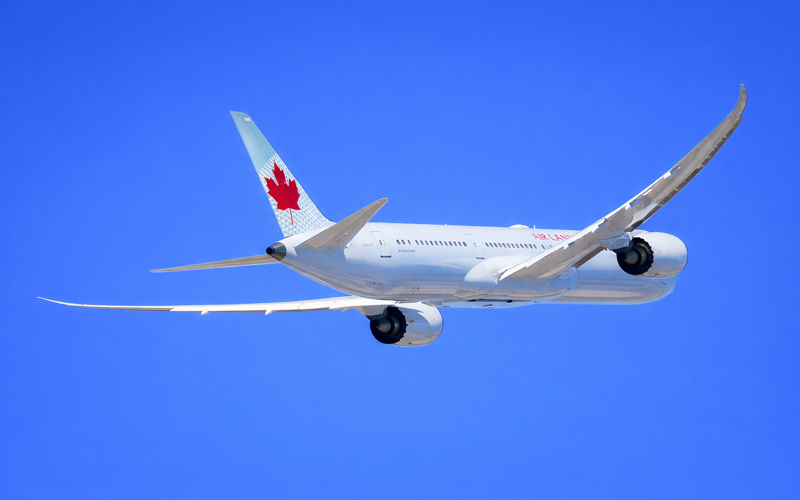Fly4Less High Ticket Sales – Premium Travel Deals & Bigger Profits

In today’s competitive travel industry, high ticket sales are the key to maximizing revenue and building long-term client relationships. For a trusted agency like Fly4Less, focusing on premium travel deals means delivering exceptional value while increasing profit margins. Whether it’s business class flights, luxury vacations, or executive travel packages, high-value bookings are transforming how travel agencies grow in 2026. What Are High Ticket Travel Sales? High ticket travel sales refer to premium-priced travel bookings that generate higher revenue per client. These may include: Business and First-Class flight tickets Luxury vacation packages Five-star hotel stays Exclusive honeymoon packages Corporate and executive travel solutions Unlike regular economy bookings, high ticket travel focuses on comfort, exclusivity, and personalized service. These bookings typically involve larger budgets but also offer higher commissions and stronger customer loyalty. Why High Ticket Sales Matter for Travel Agencies Focusing on high ticket sales provides several business advantages: Higher Revenue Per Client Instead of relying on multiple low-value bookings, one premium booking can significantly increase profits. Better Commission Margins Airlines and luxury service providers often offer better commissions on business and first-class fares. Stronger Client Relationships Premium travelers value personalized service, leading to repeat bookings and referrals. Increased Brand Authority Offering high-end travel solutions positions Fly4Less as a trusted expert in luxury and executive travel. Fly4Less Strategy for Closing Premium Travel Deals Fly4Less uses a proven strategy to convert inquiries into high-value bookings: Personalized Travel Consultation Understanding client preferences, comfort needs, and budget expectations. Exclusive Airline Partnerships Access to competitive business and first-class fares through global airline networks. Customized Luxury Packages Tailor-made itineraries including premium hotels, airport transfers, and VIP services. Flexible Travel Options Last-minute deals, flexible ticket changes, and alternative routing solutions. Dedicated Support Fast response times and professional assistance before, during, and after travel. Types of Premium Travel Deals Offered by Fly4Less Fly4Less specializes in: Business & First Class Flight Deals Discounted premium cabin fares on major international routes. Luxury Vacation Packages All-inclusive packages featuring five-star resorts and curated experiences. Last-Minute Premium Travel Offers Exclusive deals for travelers needing urgent but comfortable travel arrangements. Corporate & Executive Travel Solutions Efficient travel planning for business executives and corporate clients. How to Attract High Ticket Travel Clients Growing high ticket sales requires the right strategy: Target affluent and business travelers Use SEO keywords like “business class flight deals,” “luxury travel packages,” and “premium travel booking” Leverage social media marketing with aspirational travel content Showcase testimonials and client success stories Offer consultation-based selling instead of price-based selling Building trust and demonstrating value is essential when dealing with premium clients. Benefits of Booking High Ticket Travel with Fly4Less Clients who choose Fly4Less for premium travel enjoy: Competitive pricing on premium routes Access to exclusive airline fares 24/7 customer support Customized travel planning Stress-free booking process Reliable last-minute travel solutions Fly4Less ensures every high-value booking delivers comfort, convenience, and peace of mind. FAQs About High Ticket Travel Sales What qualifies as a high ticket travel booking? Any travel package or flight booking that involves premium cabins, luxury accommodations, or executive services. Are premium travel deals worth the price? Yes. They provide enhanced comfort, flexibility, priority services, and time-saving benefits. How can I get the best business class deals? By booking through experienced agencies like Fly4Less that have access to exclusive fares and negotiated airline rates. Conclusion: Choose Fly4Less for Premium Travel Deals High ticket sales are not just about higher prices—they’re about delivering exceptional value and unforgettable travel experiences. Fly4Less specializes in premium travel deals that combine luxury, comfort, and competitive pricing. If you’re looking for business class flights, luxury vacations, or executive travel solutions, contact Fly4Less today and experience premium travel made affordable. 📞 Call: +1 647-350-0331 🌐 Website: www.fly4less.ca Let Fly4Less help you book smarter, travel better, and experience the world in comfort.
Air Canada Seat Sale 2026 – Limited-Time Offers by Fly4Less

Planning your 2026 travel? The Air Canada Seat Sale 2026 brings incredible savings on domestic and international flights. Whether you’re booking a family vacation, business trip, or last-minute getaway, this limited-time sale offers discounted fares across multiple destinations. With Fly4Less, you can unlock exclusive flight deals, personalized support, and affordable ticket options tailored to your travel needs. Let’s explore everything you need to know about this exciting seat sale. About Air Canada As Canada’s largest airline and flag carrier, Air Canada operates an extensive network of domestic and international routes. Known for its modern fleet, comfortable seating, and reliable service, the airline connects major Canadian cities like Toronto, Vancouver, Calgary, and Montreal to destinations worldwide. Air Canada offers: Economy Class Premium Economy Business Class Maple Leaf Lounge access (for eligible travelers) In-flight entertainment and Wi-Fi on select aircraft Whether you’re flying within Canada, to the United States, Europe, Asia, or the Caribbean, Air Canada delivers a premium travel experience at competitive prices—especially during seat sales. What Is Included in the Air Canada Seat Sale 2026? The 2026 seat sale includes significant discounts across multiple cabin classes and routes. Discounted Fare Options Economy Class deals for budget travelers Premium Economy offers for extra comfort Business Class promotions on select long-haul routes Routes on Sale Domestic Canada Toronto Vancouver Calgary Montreal USA Routes New York Los Angeles Chicago International Destinations London Paris Dubai Select Caribbean destinations Travel periods vary, but many promotional fares apply to spring, summer, and fall 2026 departures. Seats are limited and available on a first-come, first-served basis. Top Destinations on Sale 🇨🇦 Domestic Canada Explore vibrant cities like Toronto’s skyline, Vancouver’s scenic mountains, Calgary’s culture, and Montreal’s European charm—all at reduced fares. 🇺🇸 USA Getaways Enjoy shopping in New York, beaches in Los Angeles, or business trips to Chicago with affordable round-trip pricing. International Adventures Travel to London for history, Paris for romance, Dubai for luxury, or relax on Caribbean beaches—now more affordable than ever. Why Book Through Fly4Less? While seat sales are exciting, securing the best fare can be challenging. That’s where Fly4Less makes the difference. Benefits of Booking with Fly4Less: Access to exclusive unpublished fares Competitive pricing on Air Canada flights Personalized travel consultation Assistance with last-minute and urgent bookings Flexible ticket options when available Instead of spending hours comparing prices, Fly4Less handles everything for you. 📞 Call: +1 647-350-0331 🌐 Visit: www.fly4less.ca Tips to Get the Best Air Canada Seat Sale Deals To maximize your savings, follow these expert tips: 1. Book Early Seat sales have limited inventory. Booking early increases your chances of securing the lowest fares. 2. Be Flexible with Dates Flying mid-week (Tuesday or Wednesday) often results in cheaper ticket prices. 3. Set Fare Alerts Monitor fare changes to grab flash deals quickly. 4. Travel Off-Peak Avoid peak holiday travel periods for better availability and pricing. 5. Contact a Travel Expert Fly4Less can help you find hidden deals and flexible fare options. Air Canada Baggage & Travel Policies Before booking, it’s important to understand the airline’s policies. Cabin Baggage One standard carry-on bag One personal item Checked Baggage Fees may apply depending on fare type Business Class typically includes free checked baggage Changes & Refunds Policies vary depending on ticket class Flexible fares may allow changes with minimal fees Fly4Less can guide you through fare rules to ensure you choose the right ticket. Who Should Take Advantage of This Sale? The Air Canada Seat Sale 2026 is ideal for: Families planning summer vacations Students traveling abroad Business professionals Holiday travelers Snowbirds heading south Whether you’re booking months in advance or planning a spontaneous trip, this sale provides excellent value. Frequently Asked Questions (FAQs) Q1: When does the Air Canada Seat Sale 2026 end? Seat sales are typically available for a limited time and may end once promotional seats are sold out. Q2: Can I change my ticket after booking? Change policies depend on the fare type selected. Flexible tickets offer better change options. Q3: Are these fares refundable? Some fares are non-refundable, while others allow cancellations with fees. Q4: Does Fly4Less charge service fees? Service charges may vary depending on the booking type. Contact Fly4Less for detailed information. Q5: How can I book? Call +1 647-350-0331 or visit www.fly4less.ca to speak with a travel expert. Book Before Seats Sell Out! The Air Canada Seat Sale 2026 offers unbeatable flight deals across Canada, the USA, and international destinations. With limited-time availability and high demand, now is the perfect time to secure your tickets. Let Fly4Less help you find the best air canada seat sale 2026 deals, cheap air canada tickets, and affordable international travel options. 📞 Call Fly4Less today at +1 647-350-0331🌐 Visit www.fly4less.ca ✈ Book now and travel more for less in 2026!
Flight Deals 2026 – Cheapest Airline Tickets & Exclusive Offers

Travel lovers are already planning ahead—and 2026 is shaping up to be one of the busiest travel years yet. With rising demand, expanding airline routes, and competitive pricing, smart travelers are securing the best flight deals 2026 well in advance. If you’re looking for the cheapest airline tickets and exclusive offers, this complete guide will show you exactly how to save big on your next trip. Don’t miss out on the opportunity to grab the best flight deals 2026 before prices start to rise. Why 2026 Is the Best Year to Book Early Flight Deals Global tourism continues to grow, and airlines are expanding routes across Europe, Asia, North America, and the Middle East. However, increased demand often means rising prices closer to departure dates. Booking early in 2026 gives you: Access to early-bird airline discounts Better seat selection Flexible fare options Lower base ticket prices Many airlines release promotional fares 6–10 months in advance, making early booking one of the smartest ways to secure cheap flights in 2026. Best Times to Find the Cheapest Airline Tickets in 2026 Timing plays a huge role in airfare pricing. Here’s how to maximize savings: Best Months to Book January to March: Great for summer deals September to November: Ideal for winter travel deals Cheapest Days to Fly Tuesdays and Wednesdays are often cheaper Midweek departures typically cost less than weekend flights Best Time of Day to Book Early morning or late-night bookings sometimes reveal lower fares Watch for flash sales announced during midweek Setting fare alerts and monitoring price trends can help you grab low airfare before prices increase. Top Destinations with Amazing Flight Deals in 2026 Airlines are offering competitive pricing to popular destinations worldwide. ✈ Europe Cities like Paris, Rome, and Barcelona remain top choices. Off-peak travel can significantly reduce airfare costs, especially during spring and autumn. ✈ Asia Bangkok, Kuala Lumpur, and Tokyo are trending travel hotspots. Airlines are increasing long-haul routes, leading to competitive pricing. ✈ North America Domestic routes and cross-border flights between Canada and the US are seeing frequent promotional fares. ✈ Middle East Dubai, Doha, and Abu Dhabi continue to attract travelers with affordable premium cabin deals and expanding airline services. International flight deals in 2026 are expected to be highly competitive, especially if booked early. How to Find Exclusive Airline Offers Scoring exclusive flight deals requires strategy: Subscribe to airline newsletters Use reliable fare comparison tools Set up real-time price alerts Look for promo codes and limited-time offers Consider working with a trusted travel agency Travel agencies often have access to unpublished fares and negotiated airline contracts that aren’t visible online. Smart Tips to Save More on Flights in 2026 Here are proven airfare-saving strategies: Be flexible with your departure and return dates Consider nearby airports for better pricing Use airline reward points and credit card miles Book connecting flights instead of direct routes Travel light to avoid extra baggage fees Even small adjustments in travel dates can lead to significant savings. Last-Minute vs Early Booking: What’s Better in 2026? Many travelers wonder whether to wait for last-minute deals or book early. Early Booking Pros: Lower base fares More flight options Less stress Last-Minute Deals: Possible for flexible travelers Rare during peak seasons In 2026, due to increasing demand, early booking is expected to provide more consistent savings compared to last-minute purchases. Business & Family flight Deals 2026 Airlines are offering improved options for group and premium travel: Group discounts for families Student and senior fare programs Business class promotional fares Flexible ticket policies Families can benefit from booking early to secure adjacent seating and lower fares. Business travelers may find competitive premium cabin upgrades during airline sales. Why Book Through a Trusted Travel Agency? While online booking platforms are convenient, a professional travel agency offers additional advantages: Access to exclusive and unpublished fares 24/7 customer support Assistance with cancellations and rescheduling Personalized travel planning Bundle deals (flight + hotel savings) Having expert assistance can save time, money, and stress — especially when travel plans change unexpectedly. FAQs About Flight Deals 2026 When should I book flights for 2026? Ideally, 3–8 months before departure for international travel and 1–3 months for domestic flights. Will flight prices increase in 2026? Prices may rise due to fuel costs and demand, making early booking more important. Can I change my ticket after booking? Many airlines now offer flexible fares, but policies vary. Always review fare rules before purchasing. How do I find error fares? Monitor fare alert websites and act quickly — error fares are limited and disappear fast. Final Thoughts: Start Planning & Save Big in 2026 The earlier you start planning, the better your chances of securing the cheapest airline tickets and exclusive flight deals 2026. With strategic booking, flexible travel dates, and access to promotional fares, you can significantly reduce your travel expenses. Whether you’re planning a family vacation, business trip, or international adventure, now is the perfect time to start comparing fares and locking in the best flight deals 2026. Don’t wait for prices to rise — start exploring the best flight deals 2026 today and travel smarter. ✈️
PIA Sale 2026 – Cheap Flights & Exclusive Airline Deals

Travelers, rejoice! Pakistan International Airlines (PIA) has officially launched its PIA Sale 2026, offering incredible discounts on both domestic and international flights. Whether you’re planning a family vacation, business trip, or a quick getaway, this is the perfect time to book. And with Fly4Less, you can grab these deals easily, safely, and at the best possible prices. Why You Should Take Advantage of PIA Sale 2026 The PIA Sale 2026 is more than just a temporary discount – it’s an opportunity to save significantly on your travel plans. Cost Savings: Travelers can save up to 30–50% on select routes during the sale. This makes it ideal for both last-minute planners and those booking months in advance. Convenience: Booking through Fly4Less ensures a smooth and secure online process. You don’t have to worry about queues or lengthy phone calls – just a few clicks, and your ticket is confirmed. Flexibility: With PIA offering flights to numerous domestic and international destinations, travelers can choose the schedule that best suits them. If you’ve been waiting for an affordable flight deal, the PIA Sale 2026 is the perfect opportunity. Top Routes to Watch for in PIA Sale 2026 Domestic Routes: Karachi to Lahore – Perfect for business travelers and weekend getaways. Islamabad to Karachi – Ideal for family visits or exploring Pakistan’s major cities. Lahore to Islamabad – Convenient for short trips and professional travel. International Routes: Karachi to Dubai – Enjoy leisure or business trips to the UAE at discounted prices. Islamabad to London – Save on flights to Europe with PIA’s reliable service. Lahore to Jeddah/Medina – Convenient for Umrah or religious visits. These routes often have the highest discounts during PIA sales, so act quickly to secure your tickets. How to Book Your PIA Sale 2026 Tickets with Fly4Less Booking PIA Sale 2026 tickets through Fly4Less is simple and hassle-free: Search for Flights: Enter your origin, destination, and travel dates. Compare Prices: Fly4Less shows the best available prices across PIA flights. Select Your Flight: Pick the flight that suits your schedule and budget. Secure Payment: Complete your booking through Fly4Less’s secure payment gateway. Confirmation: Receive instant e-tickets via email and SMS. Tip: For the best prices, book early and remain flexible with your travel dates. Fly4Less makes it easy to adjust and find alternative routes if needed. Tips to Maximize Your Savings During PIA Sale 2026 Flexible Dates: Prices vary by day, so shifting your travel by a day or two could save you more. Sign Up for Alerts: Fly4Less newsletters provide instant notifications for flash sales and discounts. Compare Airports: Some nearby airports may offer lower fares. Check Additional Fees: Always review baggage policies to avoid surprise charges. By following these strategies, you can make the most out of PIA Sale 2026 and enjoy a stress-free booking experience. Additional Benefits of Booking Through Fly4Less Booking through Fly4Less doesn’t just save you money; it provides peace of mind: Customer Support: Get assistance for changes, cancellations, or special requests. Secure Payments: Fly4Less ensures that all transactions are safe and reliable. Exclusive Deals: Access special packages and combo offers not available elsewhere. With these perks, Fly4Less becomes your one-stop solution for booking PIA flights efficiently and affordably. Conclusion The PIA Sale 2026 is your chance to travel smarter and cheaper. From domestic trips to international adventures, the discounts available through this sale are unmatched. By booking with Fly4Less, you can ensure a seamless experience, secure payments, and access to exclusive deals. Don’t wait – book your PIA Sale 2026 flights today on Fly4Less and start planning your next journey with ease!
All-Inclusive Travel Packages & Tickets – Hassle-Free Vacation Deals

Planning a vacation can be exciting—but it can also be stressful. From booking flights and hotels to figuring out meals and activities, the logistics can quickly become overwhelming. That’s where all-inclusive travel packages and tickets come in. With Fly4Less, you can enjoy a hassle-free vacation, where everything you need is bundled into one convenient package, leaving you free to focus on what truly matters: creating unforgettable memories. What Are All Inclusive Travel Packages? An all inclusive travel package is a comprehensive vacation deal that includes key elements such as flights, accommodation, meals, drinks, entertainment, and even tickets to popular attractions. Essentially, it’s designed to cover nearly every aspect of your trip so you don’t have to worry about unexpected costs or complicated planning. At Fly4Less, our all-inclusive packages are tailored to provide maximum convenience and value, whether you’re traveling for a relaxing beach escape, an adventurous getaway, or a cultural city tour. Benefits of All-Inclusive Travel 1. Cost Savings One of the biggest advantages of booking an all inclusive package is the cost savings. Bundling flights, hotels, and activities together often costs less than booking each element separately. Plus, you’ll have a clear idea of your total expenses upfront—no surprise bills at the end of your trip. 2. Convenience & Stress-Free Planning All-inclusive packages take the stress out of travel planning. Forget juggling multiple bookings for flights, hotels, meals, and tickets. With Fly4Less, everything is arranged in one simple package. 3. Variety of Activities Many all-inclusive packages include fun activities like water sports, guided tours, and entertainment programs. This ensures that your trip is filled with memorable experiences without extra effort. 4. Safety & Reliability Booking with a trusted provider like Fly4Less ensures that all aspects of your trip are reliable, reducing the chance of last-minute surprises or issues. How to Choose the Right All-Inclusive Package When selecting a package, it’s essential to consider your destination, budget, and preferred activities. Check reviews and ratings of resorts or tour providers, and always read the fine print to understand what is included and excluded. For instance, some packages might cover meals but not excursions, while others may include special activities like spa treatments or adventure sports. With Fly4Less, you can choose from a variety of all-inclusive deals that fit your unique travel preferences, whether you’re seeking a luxury resort or a budget-friendly getaway. Popular Destinations for All-Inclusive Travel Beach Resorts: Destinations like the Caribbean, Maldives, and Bali are perfect for travelers looking to relax by the sea with meals, drinks, and activities included. Adventure Trips: For thrill-seekers, countries like Costa Rica and Thailand offer all-inclusive adventure tours, from zip-lining to wildlife excursions. City Escapes: Explore the culture, history, and nightlife of cities like Paris, Rome, or Dubai, all with convenient packages that cover tickets and accommodations. Tips for Booking All-Inclusive Tickets & Packages Book Early: The earlier you book, the better the deals you can find. Compare Packages: Different providers offer different perks, so make sure to choose one that fits your needs. Look for Promotions: Seasonal offers or limited-time discounts can save you even more. With Fly4Less, you get access to a wide range of all-inclusive vacation deals that are both affordable and hassle-free. Common Mistakes to Avoid Not Checking Inclusions: Always verify what the package covers to avoid unexpected costs. Ignoring Fees or Taxes: Some packages might include hidden fees—read the details carefully. Overlooking Cancellation Policies: Travel plans can change, so ensure you understand the cancellation or rescheduling policies. Why All-Inclusive Travel Is Worth It All-inclusive travel packages offer a perfect blend of convenience, value, and unforgettable experiences. By booking with Fly4Less, you’ll enjoy a stress-free vacation with everything planned for you—from flights and hotels to meals and activities. Say goodbye to travel headaches and hello to a truly memorable getaway. Book Your All-Inclusive Vacation Today Ready for a hassle-free vacation? Explore our all-inclusive travel packages and tickets at Fly4Less and start planning your dream trip. Whether it’s a tropical escape, a cultural adventure, or a city break, we make travel easy, affordable, and unforgettable. Contact Fly4Less Today: Website: www.fly4less.ca Phone: +1 647-350-0331
Business Travel Vancouver – Top Tips, Hotels & Corporate Travel Services

Vancouver is more than just a picturesque city on Canada’s west coast – it’s a thriving hub for professionals. Whether you’re attending conferences, meeting clients, or managing corporate operations, business travel Vancouver offers a seamless blend of professional opportunities, modern infrastructure, and stunning surroundings. In this guide, we’ll cover top tips, hotels, and corporate travel services to make your trip smooth and productive. Why Business Travel Vancouver Is Ideal for Corporate Professionals Vancouver is strategically located with easy access to major international markets, making business travel Vancouver an attractive choice for corporate travelers. The city is home to rapidly growing industries such as technology, film production, and finance. Its multicultural environment ensures that international business visitors feel welcomed, while excellent public transport and airport connectivity make getting around the city effortless. Additionally, business travel Vancouver benefits from the city’s year-round conferences, seminars, and trade shows, offering abundant networking opportunities for professionals across every sector. Top Tips for Business Travelers in Vancouver Travel Logistics Getting around Vancouver is simple thanks to SkyTrain, buses, and ride-sharing services like Uber and Lyft. For corporate travelers with tight schedules, consider booking airport transfers in advance to avoid delays. Packing Essentials Pack smart with business attire suitable for meetings, along with casual wear for networking events or sightseeing. Don’t forget your tech essentials such as laptops, chargers, and portable Wi-Fi devices. Vancouver’s weather can be unpredictable, so a light rain jacket is also recommended. Time Management Tips Plan your meetings strategically to maximize productivity. Consider Vancouver’s time zone if coordinating with international offices and allocate buffer time for traffic and unexpected delays. Networking Opportunities Vancouver hosts numerous industry conferences and professional events. Utilize these opportunities to expand your business network, attend seminars, and discover potential partnerships. LinkedIn local meetups are also popular among professionals. Best Hotels for Business Travelers in Vancouver Vancouver offers a range of business-friendly hotels equipped with modern amenities: Fairmont Pacific Rim – Luxury hotel with conference facilities, business center, and high-speed Wi-Fi. Pan Pacific Vancouver – Downtown location with meeting rooms and waterfront views. Delta Hotels by Marriott Vancouver Downtown Suites – Spacious rooms suitable for extended business stays. Hyatt Regency Vancouver – Budget-friendly option with professional services and easy airport access. Booking in advance ensures availability, especially during major conferences or trade shows. Many hotels also offer corporate rates and loyalty programs for frequent business travelers. Corporate Travel Services in Vancouver For smooth business travel, consider these services: Travel Agencies: Companies specializing in corporate trips can handle flights, hotel bookings, and itinerary management. Airport Transfers and Car Rentals: Private transfers or rentals make commuting between meetings more efficient. Co-Working Spaces and Business Lounges: Spaces like WeWork or Regus provide professional environments for remote work or client meetings. Concierge Services: Hotels often offer concierge assistance for booking restaurants, arranging local transportation, or planning events. These services save time and ensure that your business trip is organized and stress-free. Dining and Entertainment Options for Business Travelers Vancouver offers excellent dining options for client meetings or after-work networking: Fine Dining: Miku, Hawksworth, and Blue Water Cafe are ideal for impressing clients. Casual Cafés: For a quick work session or informal meeting, try Revolver Coffee or Prado Café. Evening Entertainment: Attend cultural events, theater performances, or explore waterfront attractions to unwind after a busy day. Combining work and leisure ensures a balanced and enjoyable business trip. Conclusion Vancouver stands out as a prime destination for business travel Vancouver, offering a well-connected transportation system, top-tier hotels, reliable corporate travel services, and vibrant networking opportunities. The city is perfectly equipped to support professionals with efficiency and ease. Plan your next business travel Vancouver experience today and enjoy a seamless blend of productivity, comfort, and modern style.
Best Holiday Packages 2026 | Affordable Travel Deals & Destinations

Planning your next vacation in 2026? Whether you’re dreaming of tropical beaches, cultural adventures, or luxury escapes, choosing the right holiday package can make your trip stress-free and budget-friendly. With travel trends evolving and more flexible options available, 2026 is the perfect year to explore the world with affordable and best holiday packages. This guide covers the best holiday packages for 2026, top destinations, travel tips, and how to secure the best travel deals for your next getaway. Why Choose Holiday Packages in 2026 Holiday packages have become the preferred choice for travelers worldwide—and for good reason. 1. Cost-Effective Travel Bundled packages combine flights, hotels, transfers, and tours, often costing less than booking everything separately. 2. Hassle-Free Planning From accommodation to sightseeing, everything is arranged in advance, allowing you to relax and enjoy your trip. 3. Flexible Options Many travel agencies now offer flexible dates, installment plans, and easy rescheduling options in 2026. 4. Suitable for Every Traveler Whether you’re traveling with family, as a couple, or solo, there’s a holiday package designed to match your needs. Top Types of Holiday Packages in 2026 Different travelers have different preferences. Here are the most popular holiday package types for 2026: Family Holiday Packages Perfect for parents and children, these packages include kid-friendly hotels, sightseeing tours, and safe transportation. Honeymoon & Romantic Getaways Ideal for newlyweds and couples, featuring luxury resorts, private dinners, and scenic experiences. Budget-Friendly Travel Packages Designed for travelers who want memorable trips without overspending. Luxury Holiday Packages Five-star hotels, premium flights, private transfers, and exclusive experiences. Adventure & Nature Tours Includes hiking, desert safaris, water sports, wildlife tours, and mountain escapes. Group & Corporate Travel Packages Best for office trips, friends, or large families with group discounts and organized itineraries. Best International Holiday Destinations for 2026 Dubai A top destination offering luxury shopping, desert safaris, theme parks, beaches, and iconic landmarks like Burj Khalifa. Turkey Known for its rich history, beautiful mosques, hot air balloons in Cappadocia, and stunning coastal cities. Maldives Perfect for romantic vacations with overwater villas, crystal-clear waters, and peaceful surroundings. Thailand An affordable tropical destination offering beaches, nightlife, temples, and delicious cuisine. Europe Explore multiple countries including France, Italy, Switzerland, and Spain through well-planned Europe tour packages. USA & Canada Ideal for city tours, shopping, theme parks, and natural attractions such as Niagara Falls and national parks. Best Domestic Holiday Packages Domestic travel continues to grow in 2026 due to convenience and affordability. Weekend getaways for short breaks Cultural and heritage tours Beach vacations and hill station trips Customized local sightseeing experiences Domestic holiday packages are perfect for travelers who want quick and budget-friendly vacations. Affordable Travel Deals & Seasonal Offers Traveling smart means taking advantage of discounts and promotions: Early bird deals for advance bookings Last-minute holiday packages at discounted rates Off-season travel offers with lower hotel and flight prices Festive and seasonal promotions for 2026 Booking at the right time can save a significant amount on your holiday cost. How to Choose the best holiday packages Before booking, consider these essential factors: Decide your total travel budget Choose the destination and travel duration Review what’s included and excluded Check hotel ratings and traveler reviews Understand visa requirements and cancellation policies A well-researched package ensures a smooth and enjoyable travel experience. Customized Holiday Packages for Every Traveler Customized holiday packages are trending in 2026 because they offer complete flexibility. Personalized itineraries Choice of hotels and airlines Private transfers and guided tours Special requests such as birthday or honeymoon arrangements Tailor-made packages allow you to travel your way. Tips to Save Money on Holiday Packages Want to travel more while spending less? Follow these tips: Book early to get the best prices Travel during shoulder seasons Be flexible with your dates Choose bundled travel deals Compare multiple package options Smart planning can significantly reduce travel costs. Why Book With a Trusted Travel Agency A reliable travel agency provides: Expert destination guidance Secure and verified bookings Transparent pricing 24/7 customer support during travel Local and international travel expertise Professional support ensures peace of mind throughout your journey. Frequently Asked Questions (FAQs) What is included in holiday packages? Most packages include flights, hotels, airport transfers, and selected sightseeing tours. Are holiday packages cheaper than booking separately? Yes, bundled packages usually offer better pricing. Can I customize my holiday package? Absolutely. Most travel agencies provide fully customizable options. When is the best time to book holiday packages for 2026? Booking 3–6 months in advance usually offers the best deals. Do holiday packages include travel insurance? Some packages include insurance, while others offer it as an add-on. Conclusion The best holiday packages for 2026 offer the perfect balance of affordability, comfort, and unforgettable experiences. Whether you’re planning a family vacation, romantic getaway, or international adventure, booking the right holiday package ensures a smooth and memorable journey. Start planning early, explore available travel deals, and secure your ideal holiday package for 2026 today.
Corporate Travel Services | Reliable & Professional Business Travel

In today’s fast-paced business environment, efficient travel planning plays a vital role in company success. Whether it’s attending international conferences, client meetings, or internal business events, organizations need dependable and well-managed travel solutions. This is where corporate travel services become essential—offering reliable, professional, and cost-effective business travel management for companies of all sizes. Professional corporate travel management not only saves time and money but also ensures smooth, stress-free journeys for employees, allowing businesses to focus on growth and productivity. What Are Corporate Travel Services? Corporate travel services involve the planning, booking, and management of business-related travel. These services are designed specifically for companies, unlike personal travel bookings, which focus on leisure. Corporate travel management covers: Flight reservations Hotel accommodations Ground transportation Travel policies and approvals Expense tracking and reporting 24/7 travel support Businesses that frequently send employees on domestic or international trips greatly benefit from having a dedicated corporate travel partner. Key Benefits of Professional Corporate Travel Management 1. Cost Control and Budget Optimization Corporate travel agencies negotiate exclusive rates with airlines, hotels, and service providers, helping businesses significantly reduce travel expenses. 2. Time-Saving Planning Instead of employees managing bookings themselves, a professional team handles everything—saving valuable working hours. 3. Centralized Travel Management All bookings, itineraries, and expenses are managed from one system, ensuring transparency and easy reporting. 4. 24/7 Travel Support Unexpected delays, cancellations, or emergencies can occur anytime. Corporate travelers receive round-the-clock assistance for peace of mind. 5. Policy Compliance Travel policies are enforced automatically, ensuring employees follow company guidelines and avoid unnecessary spending. Our Corporate Travel Solutions We provide end-to-end corporate travel services tailored to your business needs, including: Business Flight Bookings – Domestic and international routes at competitive corporate rates Hotel & Accommodation Arrangements – Comfortable stays near business hubs Airport Transfers & Ground Transportation – Reliable pickups and chauffeur services Visa & Documentation Assistance – Support for business visas and travel paperwork Travel Insurance Coordination – Protection for international business trips Meetings, Conferences & Event Travel – Group travel planning and logistics Why Reliable Corporate Travel Matters for Businesses Reliable travel management minimizes disruptions that can affect business operations. Delayed flights, missed connections, or booking errors can cost companies both time and reputation. Professional corporate travel ensures: Smooth business itineraries Employee safety and comfort Reduced stress during travel On-time arrivals for meetings and events A professional brand image When travel runs smoothly, employees perform better and represent the company with confidence. Customized Business Travel Plans Every company has different travel needs. That’s why we offer customized corporate travel solutions for: Small businesses with occasional travel Growing companies with frequent trips Large enterprises requiring complex travel management Our flexible travel plans allow businesses to: Create tailored itineraries Set preferred airlines and hotels Access negotiated corporate pricing Manage recurring or frequent travelers easily Technology-Driven Travel Management Modern corporate travel relies on smart technology. Our solutions include: Online booking tools for fast reservations Real-time itinerary updates Automated expense tracking Detailed reporting and analytics Travel data insights for better decision-making These tools help businesses gain visibility into spending and identify cost-saving opportunities. Corporate Travel Policy Management An effective travel policy is essential for controlling costs. Our corporate travel services help businesses: Design clear travel policies Implement approval workflows Track compliance automatically Reduce unauthorized or off-policy bookings This structured approach keeps travel spending organized and predictable. Why Choose Our Corporate Travel Services Businesses trust us because we offer: Experienced corporate travel consultants Dedicated account managers Competitive corporate travel rates Global airline and hotel partnerships 24/7 customer and emergency support Personalized service with attention to detail We act as an extension of your team, managing travel efficiently while you focus on your core business. Industries We Serve Our corporate travel services support a wide range of industries, including: Corporate and multinational companies IT and technology firms Construction and engineering companies Healthcare and pharmaceutical organizations Government departments and NGOs No matter the industry, we deliver reliable business travel solutions. Frequently Asked Questions (FAQs) What is corporate travel management? It is the professional planning and management of business travel, including bookings, policies, and support. Can corporate travel services reduce costs? Yes, through negotiated rates, centralized booking, and policy compliance. Do you handle last-minute business travel? Absolutely. We specialize in urgent and last-minute corporate bookings. Do you offer international corporate travel services? Yes, we manage both domestic and international business travel worldwide. Is 24/7 support included? Yes, round-the-clock support is available for all corporate travelers. Conclusion Corporate travel plays a critical role in modern business operations. With reliable and professional corporate travel services, companies can control costs, improve efficiency, and provide a seamless travel experience for their employees. Choosing the right corporate travel partner ensures smooth journeys, better productivity, and stress-free business travel—every time. Contact us today to discover how our corporate travel solutions can support your business growth.
Best Toronto Flights 2026 | Affordable Airfare & Top Deals

Toronto is one of the most popular travel destinations in North America, welcoming millions of visitors every year for business, education, tourism, and family visits. In 2026, travel demand to Toronto is expected to grow even more, making it important to secure the best toronto flights early. Whether you’re flying for work, study, or vacation, finding the right Toronto flight at the right price can save you hundreds of dollars. Travelers who plan ahead and compare airlines often find the best toronto flights with better schedules, added comfort, and reliable service. This guide will show you how to get the best Toronto flight deals while enjoying comfort, reliability, and convenience. Why Book Flights to Toronto in 2026? Toronto is Canada’s largest city and a global hub for finance, technology, education, and tourism. In 2026, major events, international conferences, and tourism growth are driving more travelers to the city, increasing demand for the best toronto flights. With more airlines adding routes and increasing competition, passengers can benefit from better pricing and more flight options than ever before. From business professionals to international students and holiday travelers, Toronto continues to attract people from around the world. Best Airlines Flying to Toronto Toronto Pearson International Airport (YYZ) is served by major airlines from across the globe, offering access to the best toronto flights for travelers worldwide. Some of the best airlines flying to Toronto include Air Canada, British Airways, Emirates, Qatar Airways, Turkish Airlines, American Airlines, and many more. Travelers can choose between full-service carriers offering meals, luggage, and in-flight entertainment, or budget airlines that provide lower fares for those who prefer to travel light. Fly4Less helps you compare all airlines so you can choose the best combination of price, comfort, and travel time. Cheapest Months to Fly to Toronto Airfare to Toronto changes throughout the year. The cheapest months to fly are usually January, February, and late fall when tourism is lower. Spring and early summer often offer good deals as well, especially if you book in advance. Peak season, which includes June, July, August, and December, tends to have higher prices due to holidays and school breaks. Booking during low-demand months is one of the easiest ways to find affordable Toronto flights. How to Find the Best Toronto Flights Deals Finding the best flight to Toronto is about strategy. Booking early, staying flexible with your travel dates, and being open to connecting flights can significantly reduce your ticket cost. Flights with one stop are often much cheaper than direct flights. Working with a trusted travel agency like Fly4Less gives you access to wholesale fares, airline promotions, and exclusive discounts that are not always available online. One-Way, Round-Trip & Multi-City Toronto Flights One-way tickets are ideal for students, immigrants, or travelers who are unsure about their return date. Round-trip tickets usually offer better value for tourists and business travelers. Multi-city bookings are perfect for those traveling through multiple destinations, such as New York, London, or Dubai before reaching Toronto. Fly4Less can customize your ticket based on your travel needs. Business Class & Economy Flight Options to Toronto Economy class flights are the most affordable option and are perfect for budget-conscious travelers. Premium economy offers more comfort and extra legroom, while business class provides luxury seating, gourmet meals, and priority services. If you are flying long-haul, upgrading to business class can make your journey much more comfortable. Fly4Less frequently offers discounted business class fares to Toronto, helping you travel in comfort without paying full price. Toronto Pearson International Airport (YYZ) Toronto Pearson International Airport is Canada’s busiest airport, located about 25 kilometers from downtown Toronto. It offers excellent facilities, including shopping, dining, lounges, and efficient immigration services. Travelers can reach downtown Toronto by train, taxi, or ride-sharing services. YYZ is well connected to major cities worldwide, making Toronto an easy and convenient destination to reach. Why Book Toronto Flights with Fly4Less Fly4Less is a trusted travel agency that specializes in finding affordable and flexible airfare. We provide access to bulk airline deals, last-minute discounts, and exclusive fares for business and leisure travelers. Our experienced agents help you find the best routes, lowest prices, and most convenient flight schedules. Whether you are booking weeks ahead or flying tomorrow, Fly4Less ensures you get the best possible deal. 📞 Call: +1 647-350-0331 🌐 Visit: www.fly4less.ca Tips to Save More on Flights to Toronto Avoid traveling on weekends, as mid-week flights are usually cheaper. Try flying into Toronto on Tuesdays or Wednesdays for the best fares. Being flexible with nearby airports and travel dates can also reduce costs. Using Fly4Less’ fare search and expert support helps you track the lowest prices and book at the right time. Frequently Asked Questions What is the cheapest way to fly to Toronto? Booking early, choosing connecting flights, and traveling during off-peak months are the cheapest ways to fly. Which airlines fly to Toronto? Many major international airlines, including Air Canada, Emirates, Qatar Airways, British Airways, and American Airlines, operate flights to Toronto. When should I book Toronto flights for 2026? Booking 2–4 months in advance usually gives the best prices. Are last-minute Toronto flights cheaper? Sometimes yes, especially through agencies like Fly4Less that have access to special last-minute fares. Conclusion Toronto is one of the most exciting cities to visit in 2026, and with the right booking strategy, you can enjoy affordable airfare and great travel options by choosing the best toronto flights. Whether you’re traveling for business, education, or leisure, Fly4Less helps you secure the best Toronto flight deals with ease and confidence. Start planning today and let Fly4Less take care of your journey to Toronto.
Business Travel Toronto | Flexible & Cost-Effective Corporate Trips

Toronto is one of North America’s busiest business hubs, welcoming executives, entrepreneurs, and corporate teams from around the world. Whether you are attending a conference, meeting international clients, or managing company travel for multiple employees, organizing business trips can quickly become complicated and expensive. That’s why professional business travel toronto are essential. With expert planning, cost control, and flexible booking options, companies can travel smarter while keeping their budgets in check. Why Choose Professional Business Travel Services in Toronto Booking corporate travel is more than just reserving a flight and a hotel. It involves coordinating multiple schedules, handling last-minute changes, managing travel policies, and ensuring that employees arrive on time and stress-free. A professional business travel agency takes care of all these details so your team can focus on what matters most—growing your business. With expert travel management, companies avoid hidden fees, overbooked flights, and unnecessary delays. You also gain access to exclusive corporate rates that are often not available on public booking platforms. What Is Corporate Travel Management? Corporate travel management is a complete solution for organizing, booking, and monitoring business trips for a company. It includes flights, hotels, transportation, and even travel expense tracking. Instead of every employee booking individually, all travel is handled through one centralized system. This approach improves efficiency, ensures compliance with company policies, and gives businesses better control over travel spending. It also provides real-time support whenever plans change. Key Benefits of Business Travel Services in Toronto Professional corporate travel services offer many advantages for businesses of all sizes. Companies benefit from access to discounted airfare and hotel rates, flexible booking options, and expert support available around the clock. Employees enjoy smoother travel experiences, while businesses gain transparency and better cost control. From last-minute schedule changes to complex multi-city trips, everything is handled quickly and professionally. Types of Business Travel We Handle Corporate travel comes in many forms, and each requires a different approach. Business travel services in Toronto typically cover executive travel, conference and event bookings, international business trips, group corporate travel, and urgent last-minute flights. Whether you are sending a single executive overseas or managing a full team attending an industry event, professional travel planners ensure every detail is perfectly organized. Cost-Saving Strategies for Corporate Travelers One of the biggest benefits of using a business travel agency is cost efficiency. Agencies work with airlines and hotels to secure negotiated corporate rates that significantly reduce travel expenses. They also optimize travel routes, suggest the best booking times, and help businesses avoid unnecessary fees. Over time, this results in substantial savings compared to booking through regular consumer travel websites. Why Toronto Businesses Trust Professional Travel Agencies Toronto businesses rely on corporate travel agencies because they understand the local market and global travel trends. With strong partnerships with airlines and hotels, they can provide better deals, priority service, and faster problem resolution when issues arise. Instead of dealing with long hold times or automated systems, companies get real people who know how to solve travel problems quickly. How Flexible Corporate Travel Helps Your Business Grow Flexibility is critical in today’s fast-moving business world. Meetings change, deals evolve, and travel plans must adjust quickly. Flexible corporate travel solutions allow companies to make changes without major penalties, reducing downtime and stress for employees. business travel toronto focuses on adaptability to meet these evolving needs. This flexibility supports international expansion, improves staff satisfaction, and keeps business operations running smoothly. With reliable planning and support, business travel toronto helps companies stay efficient and competitive. How to Book Business Travel in Toronto Booking corporate travel is simple when working with a professional agency. You get access to dedicated account managers, online booking tools, and phone support to handle all your travel needs. Whether you are planning a trip weeks in advance or need a last-minute flight, everything is handled efficiently in one place with business travel toronto support. FAQs About Business Travel Toronto Is corporate travel cheaper than booking online? Yes, corporate travel agencies have access to negotiated rates and exclusive deals that are not available to the public. Can I change or cancel business trips? Most business travel plans come with flexible change and cancellation options, depending on the fare type. Do you handle international business trips? Yes, corporate travel services cover both domestic and international travel for businesses. Are last-minute bookings available? Absolutely. Business travel agencies specialize in urgent and last-minute corporate travel arrangements. Conclusion Choosing the right Business Travel Toronto partner makes a huge difference in how your company travels. With flexible booking, cost-effective solutions, and professional support, businesses can enjoy smooth and efficient corporate trips. Whether you’re traveling locally or internationally, a trusted corporate travel agency helps you save time, reduce costs, and keep your business moving forward. If you’re looking for flexible and cost-effective corporate travel solutions in Toronto, working with an experienced business travel provider is the smartest choice.
